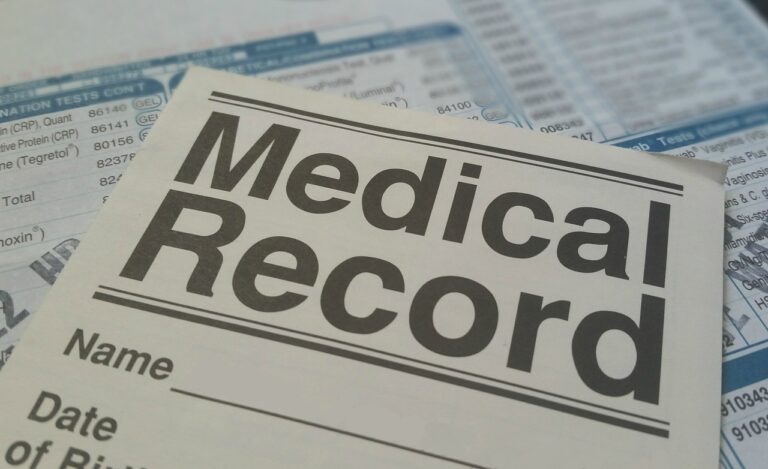
Who Can Access My Medical Records Without My Permission in FL? Explained
Personal medical records contain very sensitive information. So, whether you need them during a legal battle or want to know that your data is safe, asking “Can any doctor access my medical records?” is a pertinent question.
Table of Contents
Here at Cary Woods Law, our team of experienced attorneys can help you through all aspects of a personal injury claim. From car accidents to hotel injuries, though, your medical records will be a valuable asset. Here’s all you need to know about who can access them.
Overview of Medical Records Access
Medical records access is a fundamental aspect of healthcare, empowering patients to obtain and review their medical information. The Health Insurance Portability and Accountability Act (HIPAA) sets national standards for safeguarding the confidentiality, integrity, and availability of protected health information (PHI). Under HIPAA, patients have the right to access their medical records, which includes the ability to inspect, copy, and request amendments to their records. This access ensures that patients can stay informed about their health, verify the accuracy of their medical information, and make well-informed decisions about their medical treatment. Whether you need to check past treatments, confirm medical details, or support a legal claim, understanding your rights to access your medical records is crucial.
Accessing Medical Records: Who Can See Them? Healthcare Providers and More
As a patient, you will have two types of medical records. A personal medical record (PMR) is controlled by you and should be kept at all times as it will allow you to advise new doctors about your medical history. Meanwhile, an Electronic Health Record (EHR), is the real-time computer-based record that doctors and authorized personnel may access for the purpose of providing personalized healthcare.
All individuals have their medical records protected by Health Insurance Portability and Accountability Act (HIPAA) privacy laws. This ultimately means that you have access to your medical records while simultaneously retaining the right to keep your data private as a covered entity must comply with HIPAA regulations.
There are several reasons why you may wish to view your records such as checking dates relating to past treatments, confirming your blood type, or supporting a job application. Alternatively, you may need this information in relation to a personal injury lawsuit in Miami or to look for possible mistakes.
Health care providers are obligated under HIPAA to provide timely access to your PHI, ensuring you can review your medical information when needed.
Aside from you, the only other authorized parties who may access your medical records are;
- A personal representative (such as an attorney).
- Family and relatives (only with your permission).
- Health care providers.
- Insurance companies or Medicaid, as well as groups that pay for your health care services.
- Public health agencies (when dealing with issues linked to public health, like diseases).
- Law enforcement agencies (if you suffered an injury as the result of a crime and they have a valid subpoena or court order).
It is likely that you have several medical records from different providers that ultimately feed into your overall EHR and medical records. This will not include any psychotherapy notes, though, as they serve as a separate entity from your medical and billing records.
So, if you’re wondering “Can any doctor access my medical records?”, the answer is yes. However, because different healthcare providers and entities use different types of data, it’s likely that they only have access to a certain percentage of your data. Healthcare providers only share data with other healthcare teams when permission has been granted.
The medical record will contain protected health information (PHI), which is the info you actively want to access. However, it’ll also include your aggregated medical record, which is a list of data points that help researchers and other parties with data mining. The latter information can be accessed by several other parties but cannot be used to identify you, which is why you should not worry about this.
When handling a legal matter, such as a personal injury case, healthcare providers will share data with your attorney (once you have granted permission). Here at the Law Office of Cary Woods II, our attorneys can reach out to all relevant healthcare teams to acquire the full patient medical records needed to build a clearer picture of your case.
Generally speaking, medical records will be delivered within 14 days of making a request. However, it can take up to 30 days depending on the circumstances.
HIPAA and Access to Medical Records
HIPAA mandates that covered entities, such as healthcare providers and health insurance companies, must provide patients with access to their medical records upon request. This means that when you request your medical records, the healthcare provider or health insurance company is required to comply within a specific timeframe. Typically, covered entities must provide a copy of your medical records within 30 days of the request. If the records are not maintained or accessible on-site, the entity has up to 60 days to fulfill the request. Additionally, patients have the right to request that their medical records be sent to a third party, such as another healthcare provider or a family member. This ensures continuity of care and allows for seamless transitions between different healthcare providers.
State Laws and Medical Records Access
In addition to HIPAA, state laws also play a significant role in governing medical records access. For instance, the Texas Medical Records Privacy Act requires covered entities to comply with HIPAA while adding extra protections for patients. This state law prohibits covered entities from using or disclosing protected health information without a valid authorization and mandates that they provide patients with access to their medical records upon request. Similar laws exist in other states, each with its own set of regulations and protections. These state laws work in conjunction with HIPAA to ensure that patients’ medical information remains private and accessible, providing an additional layer of security and peace of mind for patients seeking access to their health records.
Tracking Your Medical Records: Finding Out Who Has Accessed Them
As an American citizen, you are protected by privacy rights that state you are entitled to see who has accessed your medical records. It allows you to look back at six years of data and will show you;
- Who has accessed your medical records in that time,
- What information they accessed within your medical records,
- When they accessed this information,
- How frequently each piece of data was looked at,
- Why they wanted to see this part of your medical record.
The U.S. Department of Health and Human Services oversees HIPAA compliance, ensuring your rights are protected.
Hospitals and healthcare providers working under HIPAA will naturally log all of this information through their internal systems. By contacting the hospital directly, you can have them print out this information for you. Of course, they will only do this after proving your identity. Or in the case of using a representative, the healthcare organization will seek confirmation to authorize access to this data.
This log will provide clear details of who accessed data, as well as when and why. This information can be hugely beneficial for personal injury cases because it creates a timeline of an injury and subsequent treatments you had, as well as the various medical teams that had to access the data.
Meanwhile, this can help you check diagnoses, medical insurance billing codes, and suspicious activity. The log will also show who medical records have been sent to – such as other healthcare services – for further transparency. By requesting your patients’ medical records from all relevant doctors, you’ll soon be able to create a clear image of how your records have been accessed over a period of up to six years.
It should also be noted that parents have access to their child’s medical records until the child turns 18. At this point, a young adult who wants their child to have access to the medical records will have the option to grant permissions by signing a form. While parents do have access to children’s medical records, healthcare providers may hold back from telling parents about sensitive issues.
Understanding the Cost: Can Doctors Charge for Medical Records and Health Insurance?
Knowing that you have the right to see your medical record along with the tracking data for up to six years is one thing. However, most patients would also need to understand the potential costs involved with accessing their data too.
Healthcare professionals can deny claims to see medical records. However, this is primarily done to protect patient confidentiality when they are not sure that a person requesting information is authorized to see it. So, when requesting your own medical records, it is not normally an issue. In rare cases where this does occur, the doctor must explain the decision in writing within 30 days while you have the right to contest the decision via a review.
When asking to see your medical records, healthcare providers are not allied to charge you for searching or retrieving records. Moreover, they are not allowed to deny you access to the records due to non-payment for medical services received. On the other hand, they can charge you for printing and mailing the requested documents as well as their time. This is in line with Section 456.057 of the Florida Statutes. The charges should be;
- No more than $1 per page for printed materials (or $0.25 per page after 25),
- Up to a maximum of $2 for electronically delivered materials,
- A charge of no more than $1 for each year of medical records requested.
One of the exemptions from this is when X-rays and other specialist materials are needed. In these instances, the $1 per page limit is removed but medical practitioners must still adhere to the rule of only charging a fee equivalent to the actual costs of materials and equipment.
Even with the addition of sales tax and shipping, it should not cost much to acquire medical records. They can be hugely important in your slip and fall or other personal injury claims, not least for proving the extent of the damage suffered as a result of someone’s negligence.
Transferring Medical Records: Can Doctors Charge for the Service?
The simple answer to “Can any doctor access my medical records?” is yes. However, the fact that different doctors and medical teams hold different information relating to varying aspects of your health history does complicate things.
Healthcare providers can send copies of the records they hold to other authorized (by you) parties, including other healthcare teams. Alternatively, they may pass on the data if it is needed for treatment and/or payment purposes.
In relation to transferring medical records, fees are largely determined by the intended purpose. When requested for patient care reasons, no fee can be charged. However, when needed for an attorney, insurance companies, and other personal reasons, a fair fee may be charged. Once again, though, medical teams may only charge a fair fee that reflects the cost of materials and time spent completing the process.
When requesting medical records for personal purposes, such as filing a personal injury lawsuit, you can use the Authorization to Disclose Confidential Information form. There is no charge for completing and submitting the form. Medical records can be mailed to you and most healthcare practitioners will allow you to pick them up. When documents are transferred to another medical team, this is completed by secure post – or, in some cases, electronic delivery.
Want to learn more about accessing your medical records in relation to a personal injury claim? Then call the Law Office of Cary Woods II now. Together, we will secure the justice and compensation that you deserve.





